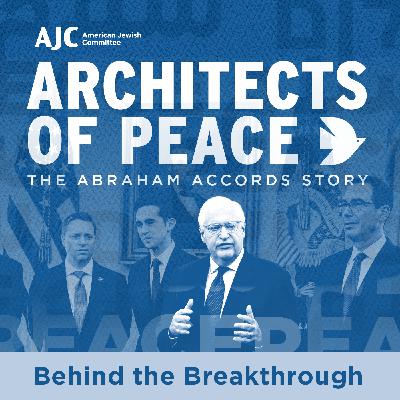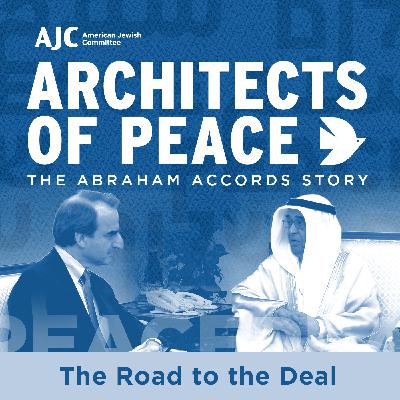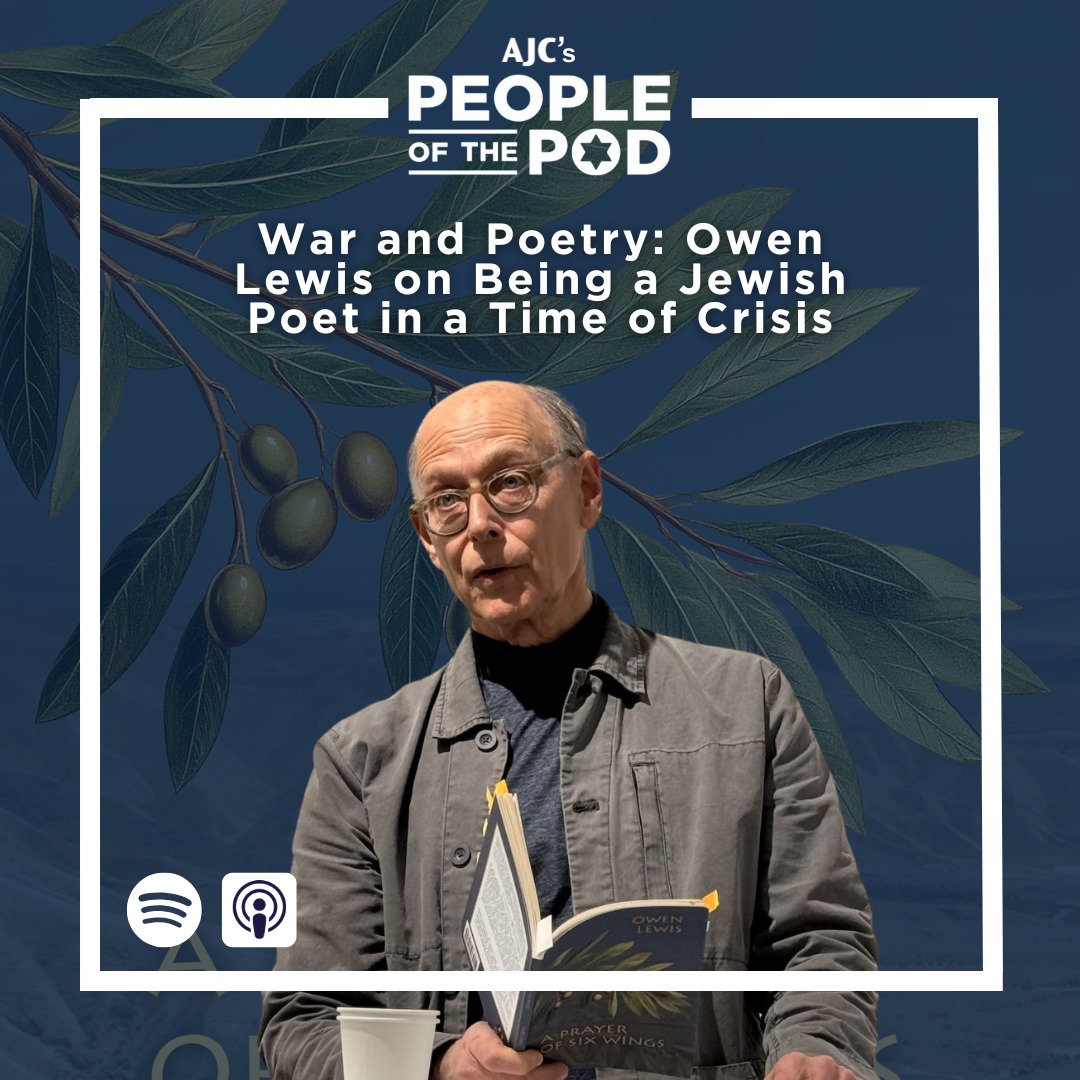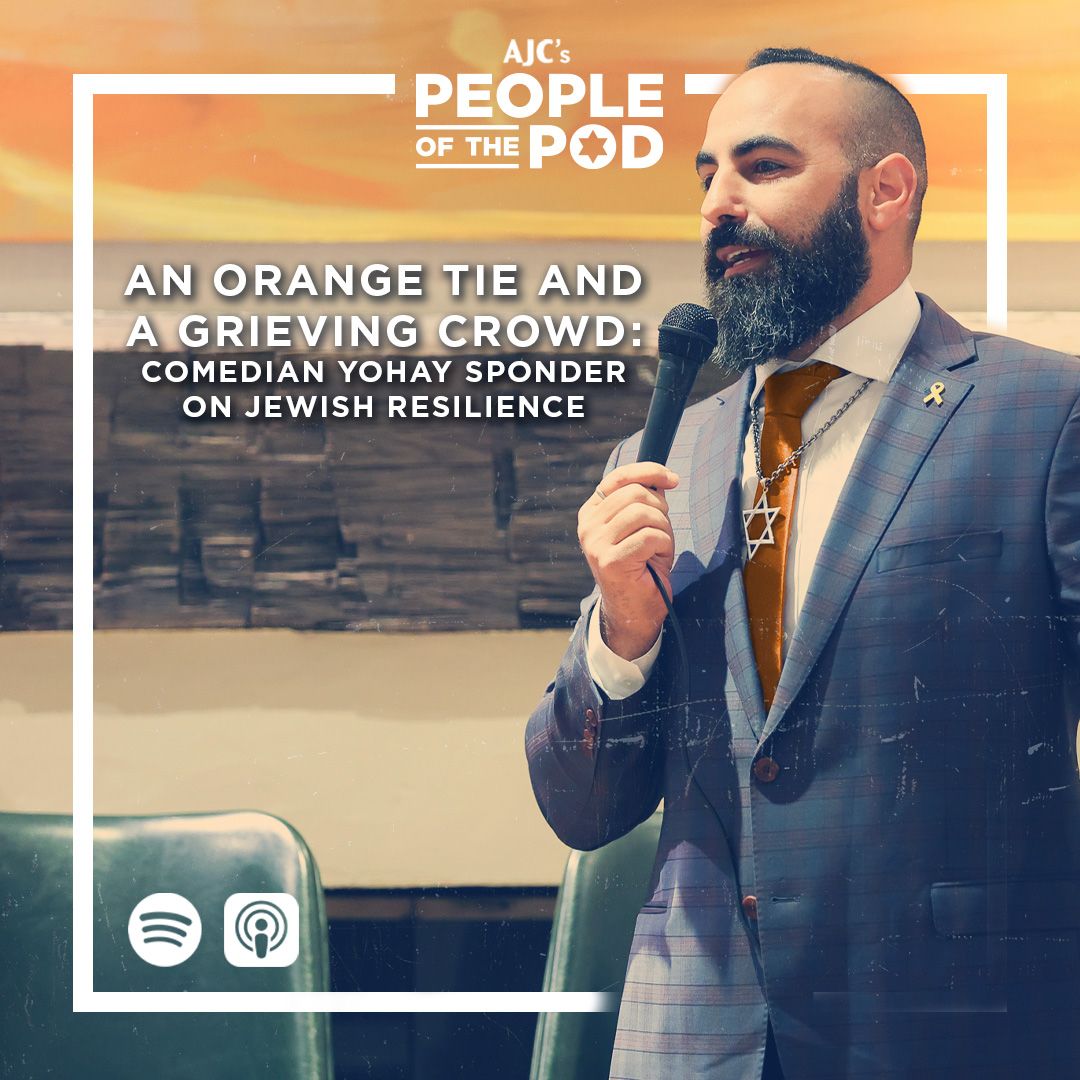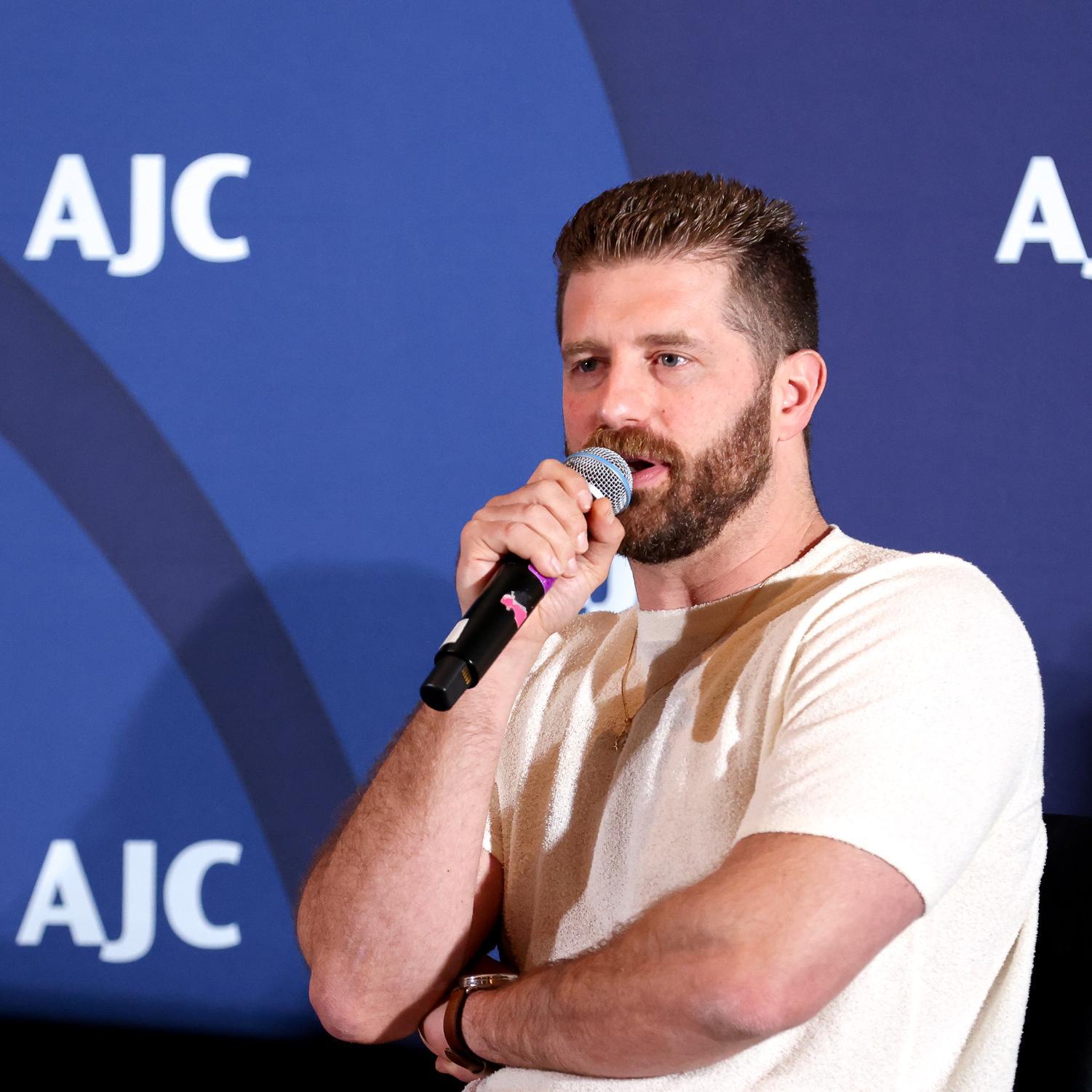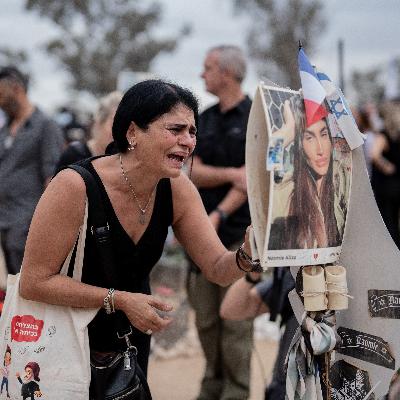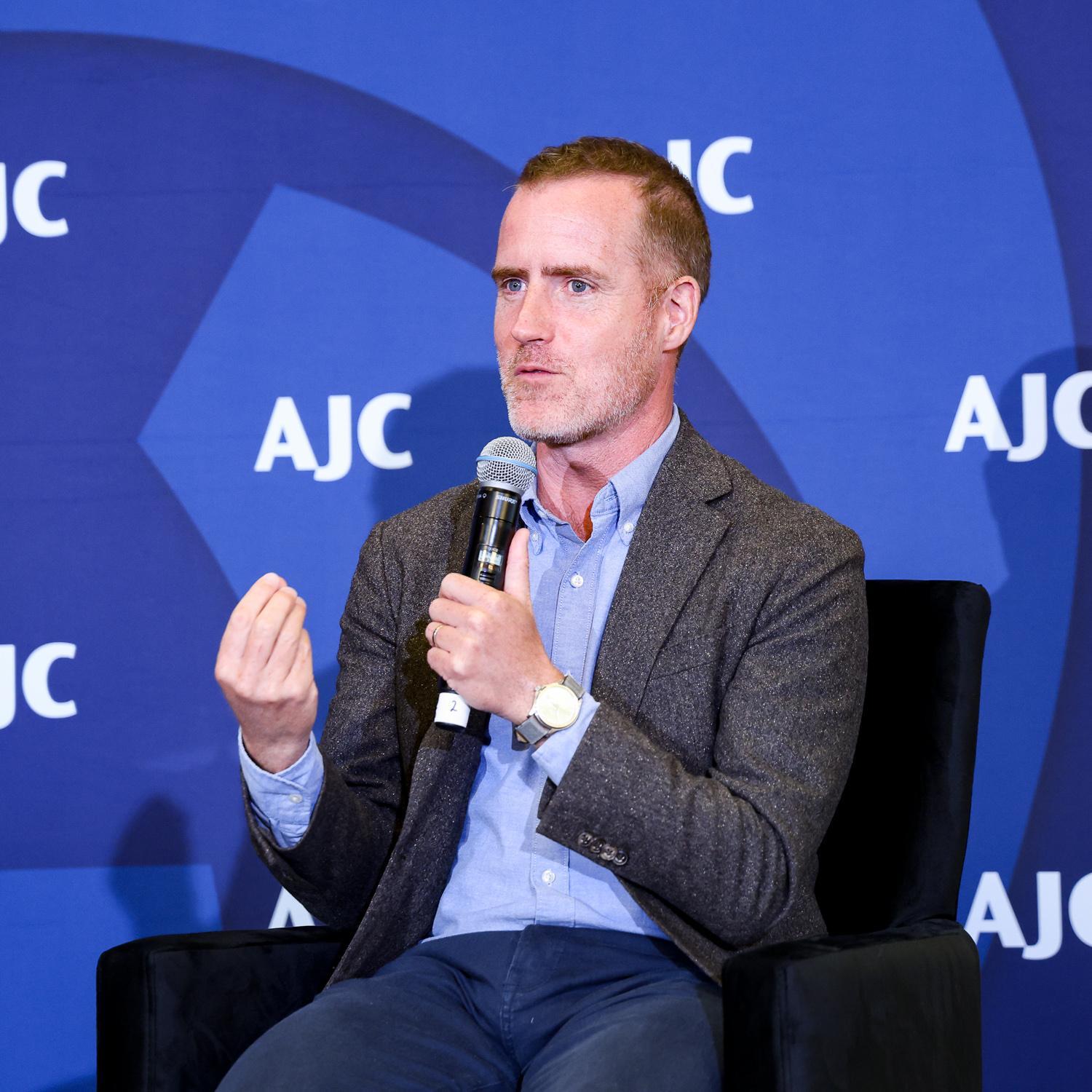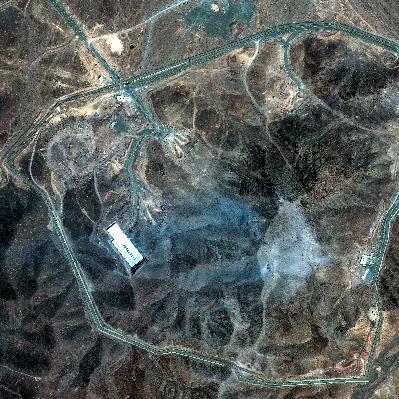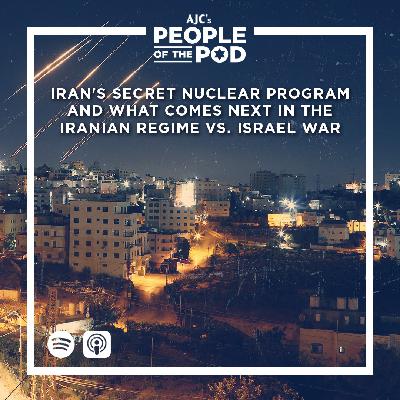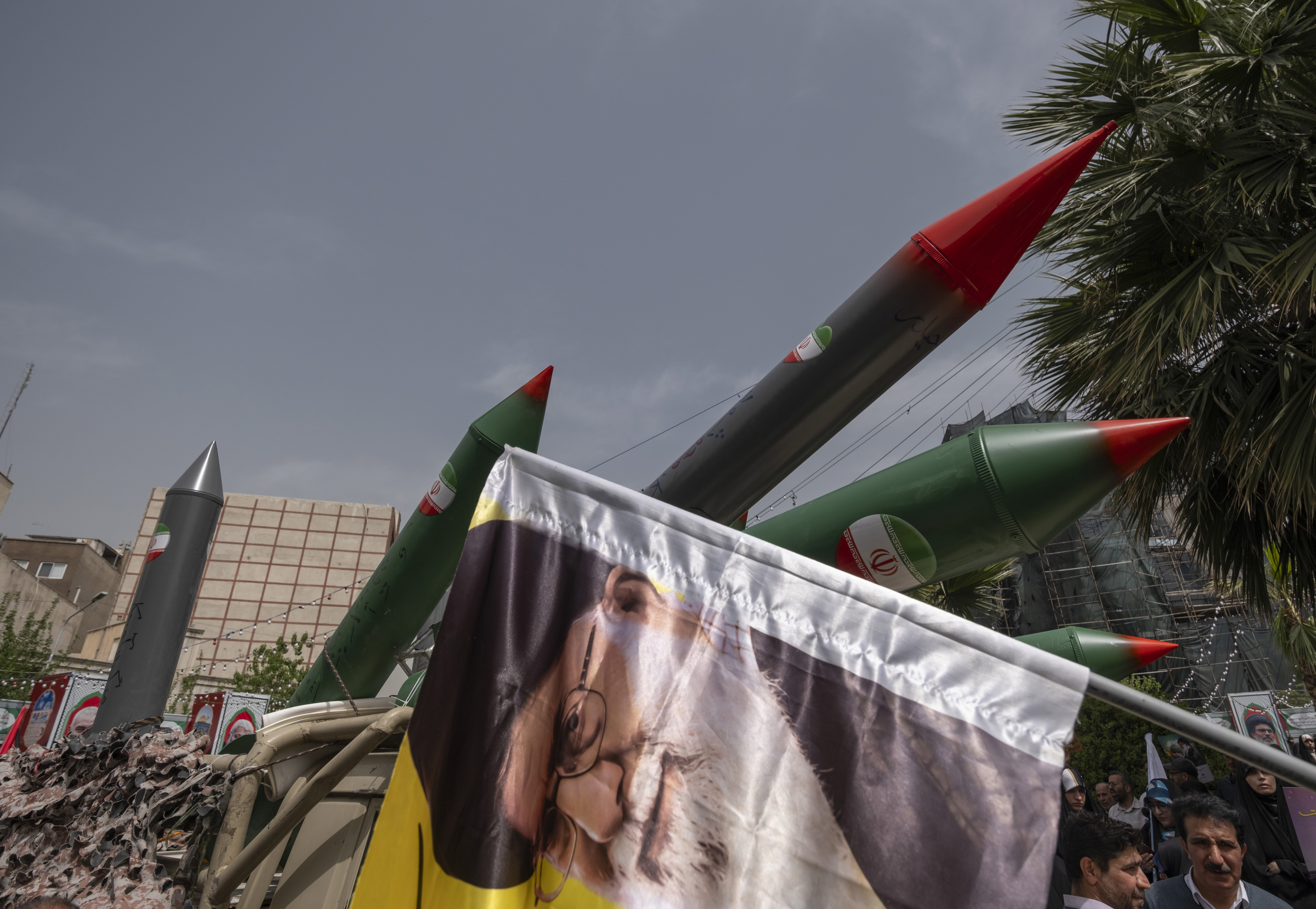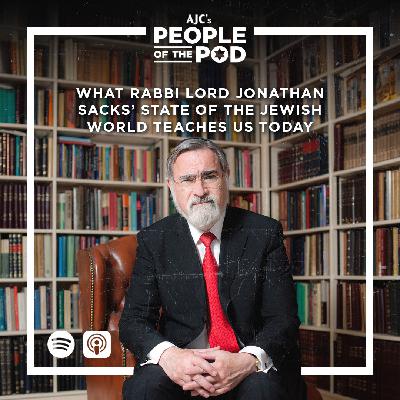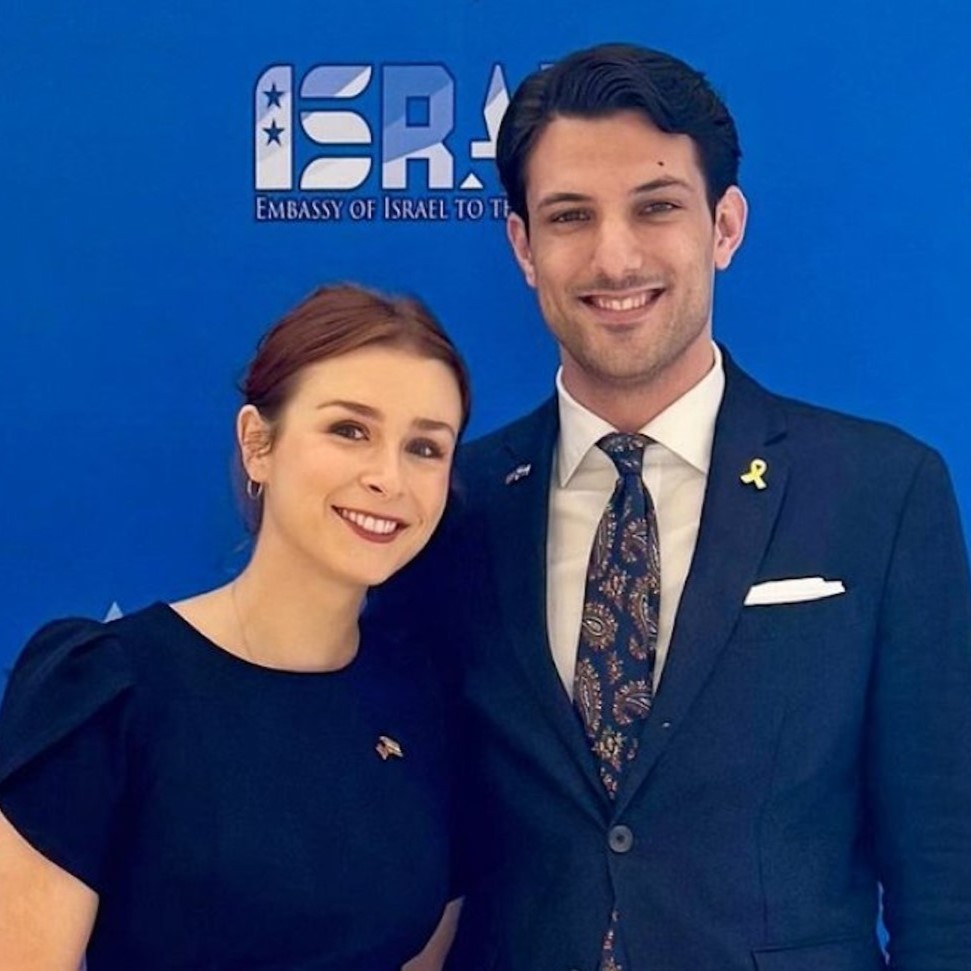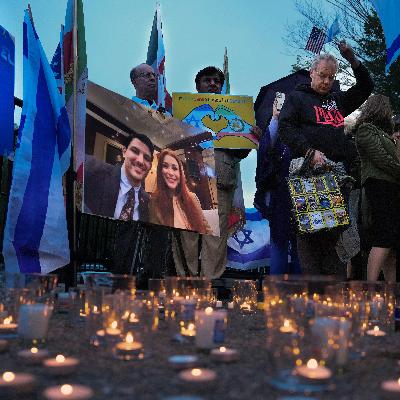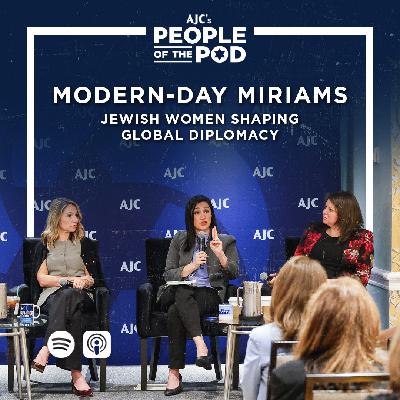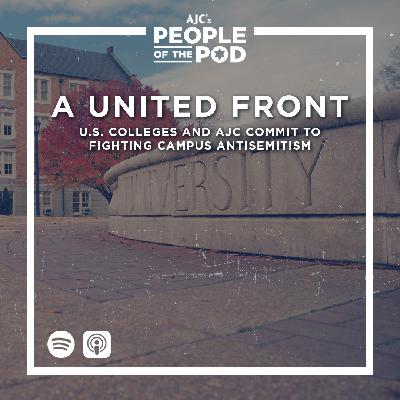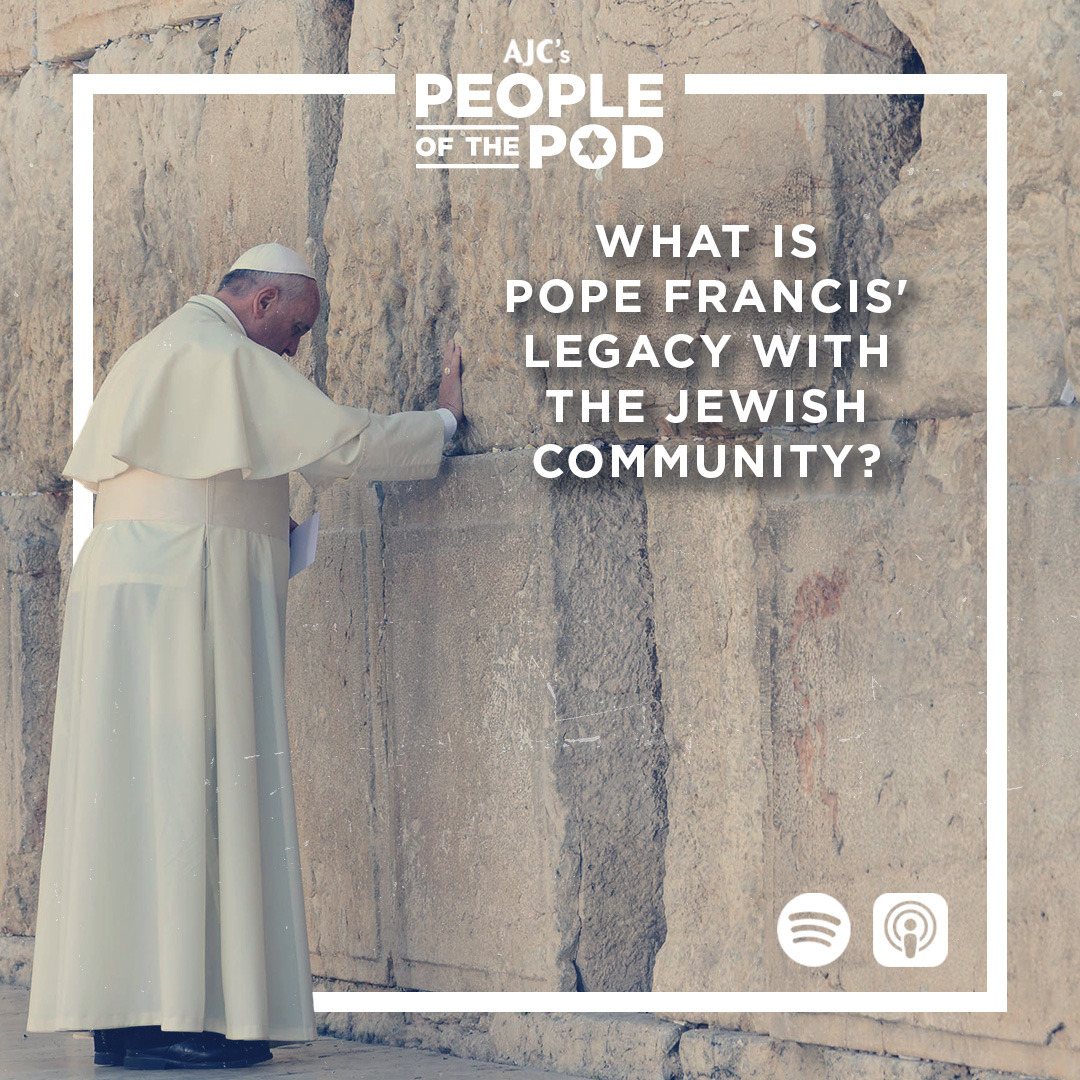Inside the New U.S.-Iran Nuclear Talks: What’s at Stake?
Description
As new negotiations begin to tackle Iran’s nuclear program, missile development, and support for terror proxies, tensions are escalating. Jason Isaacson, AJC Chief Policy and Political Affairs Officer, joins us to unpack the legacy of the 2015 Iran nuclear deal (JCPOA) and withdrawal in 2018, and Iran’s dangerous stockpiling of uranium, getting them closer to nuclear weapons capabilities. With U.S. Special Envoy Steve Witkoff leading talks and key UN sanctions expiring soon, the stakes are higher than ever. Don’t miss Jason’s insights on what the U.S. is demanding, the potential for successful diplomacy, and the global risks posed by Iran.
___
Listen – AJC Podcasts:
-
The Forgotten Exodus: Untold stories of Jews who left or were driven from Arab nations and Iran
-
Social media influencer Hen Mazzig on leaving Tunisia
-
Chef Einat Admony on leaving Iran
-
Playwright Oren Safdie on leaving Syria
-
Cartoonist Carol Isaacs on leaving Iraq
-
Novelist Andre Aciman on leaving Egypt
Follow People of the Pod on your favorite podcast app, and learn more at AJC.org/PeopleofthePod
You can reach us at: peopleofthepod@ajc.org
If you’ve appreciated this episode, please be sure to tell your friends, and rate and review us on Apple Podcasts or Spotify.
Transcript of Interview with Jason Isaacson:
Manya Brachear Pashman:
Negotiations begin on Saturday to curtail Iran's nuclear fuel enrichment, infrastructure, missile program and support of Hezbollah Hamas and other terror proxies around the world. US Special envoy to the Middle East, Steve Witkoff, will shepherd the talks. At the same time he's handling discussions around Gaza and Ukraine with us to discuss the potential of these negotiations and their impact is AJC Chief Policy and Political Affairs Officer, Jason Isaacson. Jason, welcome back to People of the Pod.
Jason Isaacson:
Thanks, Manya. It's good to be back.
Manya Brachear Pashman:
So Jason, the Obama administration sealed the deal in 2015 to curtail Iran's nuclear program, which President Trump then withdrew from in 2018. What did that original deal look like?
Jason Isaacson:
Of course, the United States pulled out of the deal in 2018 as you said, whereupon, after a period of reflection and some uncertainty, the Iranians started violating the agreement. The original agreement that was called the Joint Comprehensive Plan of Action allowed the Iranians to enrich their uranium up to 3.67% purity of uranium. You need something like 90% in order to make a bomb. They were allowed to keep just 300 kilograms of that enriched uranium. The rest of their stockpile of uranium had to be shipped out of the country, which it was.
There were other restrictions that were imposed on Iran. They had to disable a plutonium facility that also was a possible avenue toward a nuclear device. They had to allow intrusive inspections, not as intrusive as some had hoped, and they had to limit the degree of sophistication of their centrifuges. They had a very robust centrifuge production capacity, which had to be limited. They had to disable certain centrifuges that they already had, and they couldn't advance them further.
There were a number of these other restrictions that were imposed in the return for which the Iranians were going to have sanctions removed, sanctions that had held back their economic growth, limited the degree to which they could ship their oil and gas to vendors, to customers around the world. It was a good trade for the Iranians, but from our perspective, it lacked certain things. It certainly lacked objectives that the administration, at that time, the Obama administration, we thought, had been pursuing, which was not only to limit the ability of the Iranians to produce a nuclear weapon, but to affect other aspects of Iranian behavior, their missile program, their advanced ballistic missile program, their support for proxies that endangered stability and security across the region and beyond.
Those issues ended up getting dropped in the nuclear negotiations. They were just focused on nuclear program, which was a reason why AJC opposed the deal when it was announced in 2015 and why Donald Trump campaigning for president and then after he became president, after giving it a run to try to find a way to perhaps induce European partners to go back to the negotiating table and impose additional restrictions on the Iranians, including covering the missile program, lengthening the amount of time that would be held in check the nuclear program of Iran for maybe not just 15 years, but 20 or 30 or 40 or 50 years. Those efforts were ultimately abandoned. Was impossible to reach an agreement between the United States and the European allies, and so in 2018 the president pulled out.
Manya Brachear Pashman:
So besides the man in charge, what has changed in the last decade since that time?
Jason Isaacson:
Iran has serially and outrageously violated the terms that were agreed to 2015 they were initially allowed, as I said, to have 300 kilograms of low enriched uranium. They now have 8200 kilograms plus, according to the IAEA, the International Atomic Energy Agency, and some of that is enriched up to a level of 60% which is really, frankly, just below the level needed for a nuclear device. So they're way out of alignment, way out of the agreement that they had reached in 2015 now, of course, in addition to that, the Iranian economy has suffered a decade of sanctions, high inflation, high unemployment, rolling. Blackouts in major cities, the brain drain.
Smart Iranians realizing there's no economic future in their country and have left and of course, over the last year and a half, after the Hamas attacked on Israel of October 7, 2023 Iran, a supporter of Hamas, a funder and supplier of Hamas, after a few months, it posed its own attacks, fired missiles and drones at Israel in support of Hamas' activities and also in support of Hezbollah, the other Iranian proxy on Israel's northern border. So twice in the last year and a half, we've had attacks by Iran against Israel, which Israel responded to, and significantly weakened terrorists in Lebanon, Hezbollah. And of course, the Hamas, they decapitated Hezbollah, and they also struck back at Iran, after Iran fired missiles and drones that had mostly been intercepted by Israel's air defenses in cooperation with the United States, and frankly, some Arab partners and also France and the UK.
Manya Brachear Pashman:
So does Iran have as much leverage as it had in 2015?
Jason Isaacson:
It must be said that Iran is weakened. It's weakened economically, it's weakened militarily, its air defenses have been exposed and significantly damaged, and it has seen that its attempts to strike at Israel are deflected. By a combination of us and and especially Israeli forces, and also with the support of some regional allies and European allies as well.
So Iran goes into this negotiation with the Trump administration in a poorer position to make its demands heard and enforced, except for the fact that Iran is proud and it has shown under enormous economic duress, they have continued to advance their nuclear program. They clearly believe that this is part of their right and necessity if they are going to provide some kind of a defense for themselves against what they see as a US led us in cooperation, in partnership with Israel, led effort to weaken them and drive them away from their power in the Gulf, to limit their ability to exert influence across the region. So they may be in a poorer position. Whether that will be evident in the negotiating table is another question.
Manya Brachear Pashman:
President Trump criticized the


